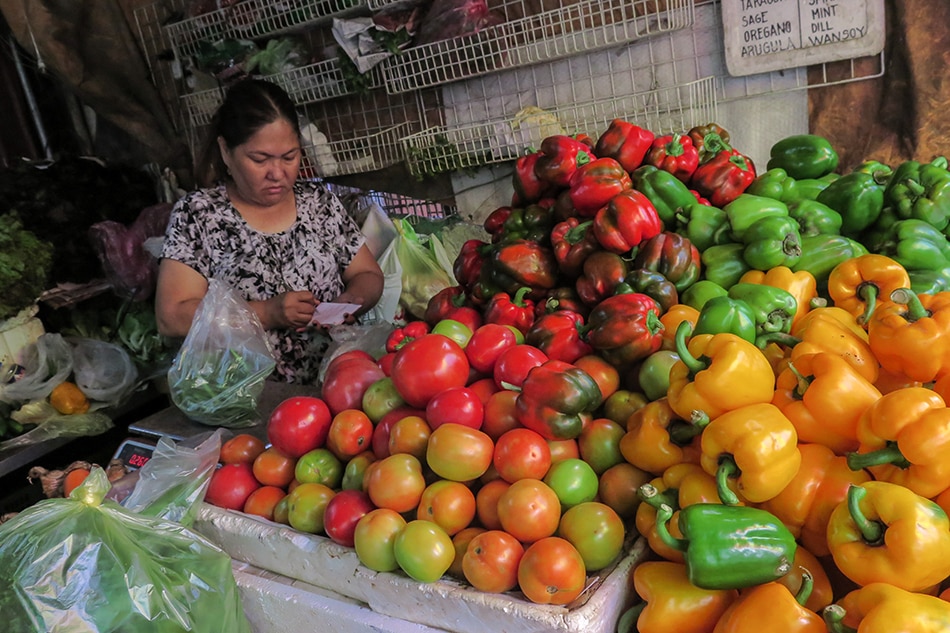Inflation a 'prominent challenge' to Philippines, Moody's says | ABS-CBN

Welcome, Kapamilya! We use cookies to improve your browsing experience. Continuing to use this site means you agree to our use of cookies. Tell me more!
Inflation a 'prominent challenge' to Philippines, Moody's says
Inflation a 'prominent challenge' to Philippines, Moody's says
ABS-CBN News
Published Sep 07, 2018 10:47 AM PHT
|
Updated Sep 07, 2018 11:09 AM PHT
MANILA -- Inflation is a "prominent challenge" to the Philippines and elevated price spikes will remain "for a couple of months," debt-watcher Moody's said Friday.
MANILA -- Inflation is a "prominent challenge" to the Philippines and elevated price spikes will remain "for a couple of months," debt-watcher Moody's said Friday.
With inflation reducing purchasing power, coupled with faster than expected interest rate increases, the Philippines will likely "fall far short" of Moody's 6.8-percent economic growth forecast for the year, said the agency's vice president and senior credit officer Christian de Guzman.
With inflation reducing purchasing power, coupled with faster than expected interest rate increases, the Philippines will likely "fall far short" of Moody's 6.8-percent economic growth forecast for the year, said the agency's vice president and senior credit officer Christian de Guzman.
Moody's rates the Philippines' sovereign debt at investment grade with a stable outlook, meaning positive and negative risks are "balanced," De Guzman told ANC's Market Edge with Cathy Yang.
Moody's rates the Philippines' sovereign debt at investment grade with a stable outlook, meaning positive and negative risks are "balanced," De Guzman told ANC's Market Edge with Cathy Yang.
"We do expect higher inflation will remain for a couple more months," De Guzman said. Monetary policy has been "especially proactive" and "somewhat effective" in helping the Bangko Sentral meet its targets.
"We do expect higher inflation will remain for a couple more months," De Guzman said. Monetary policy has been "especially proactive" and "somewhat effective" in helping the Bangko Sentral meet its targets.
ADVERTISEMENT
Inflation zoomed to 6.4 percent in August, led by food, and smashing government and market forecasts. Analysts said this put pressure on the Bangko Sentral ng Pilipinas to raise rates by as much as 50 basis points on Sept. 27, after bringing its benchmark rate to 4 percent so far this year.
Inflation zoomed to 6.4 percent in August, led by food, and smashing government and market forecasts. Analysts said this put pressure on the Bangko Sentral ng Pilipinas to raise rates by as much as 50 basis points on Sept. 27, after bringing its benchmark rate to 4 percent so far this year.
It would be "mathematically impossible" for the Philippines to meet Moody's 6.8 percent growth target for the year, after the second quarter expansion fell below forecasts at 6 percent, he said.
It would be "mathematically impossible" for the Philippines to meet Moody's 6.8 percent growth target for the year, after the second quarter expansion fell below forecasts at 6 percent, he said.
There is a "greater shift to the negative side" in terms of risk due to the turmoil in Turkey and Argentina, which had affected emerging markets like Indonesia and India.
There is a "greater shift to the negative side" in terms of risk due to the turmoil in Turkey and Argentina, which had affected emerging markets like Indonesia and India.
The first tranche of tax reforms is "very positive" for the Philippines' fiscal position, De Guzman said.
The first tranche of tax reforms is "very positive" for the Philippines' fiscal position, De Guzman said.
Moody's will be watching how political turmoil will affect government's ability to pursue more reforms, he said.
Moody's will be watching how political turmoil will affect government's ability to pursue more reforms, he said.
ADVERTISEMENT
ADVERTISEMENT


